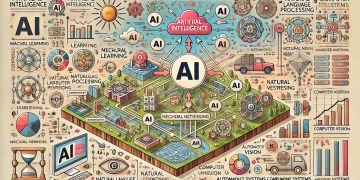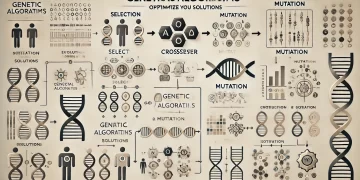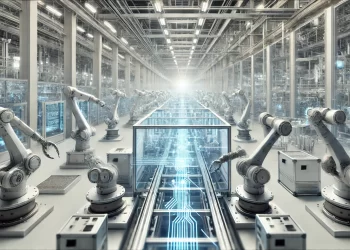Artificial Intelligence (AI) is used by the transportation and logistics industry to enhance efficiency, optimize routes, automate supply chains, while improving safety. AI-driven innovations such as autonomous vehicles, predictive maintenance, intelligent traffic management, and smart warehousing are reshaping the way goods and people move. This article explores various AI use cases in transportation and logistics, detailing how businesses leverage AI to gain a competitive edge.
1. Autonomous Vehicles and AI-Powered Fleet Management
AI enables the development of self-driving vehicles that improve transportation efficiency and safety. Companies like Tesla, Waymo, and Uber use AI-powered autonomous systems for passenger transport and goods delivery. AI-driven fleet management systems optimize vehicle performance, reduce fuel consumption, and lower operational costs.
2. Intelligent Traffic Management Systems
AI-driven traffic management systems analyze real-time traffic data, optimize signal timings, and predict congestion patterns. Cities worldwide implement AI-powered solutions to reduce road congestion, enhance mobility, and improve public transportation efficiency. AI-based adaptive traffic control systems help in reducing emissions and fuel consumption.
3. Predictive Maintenance for Vehicles and Infrastructure
AI enhances predictive maintenance by analyzing sensor data from vehicles, airplanes, ships, and rail systems to detect potential failures before they occur. Machine learning algorithms predict maintenance needs, minimizing downtime, reducing repair costs, and ensuring transportation reliability.
4. AI in Supply Chain Optimization
AI optimizes supply chain operations by analyzing demand trends, automating inventory management, and improving logistics planning. AI-driven predictive analytics enhance demand forecasting, enabling businesses to adjust inventory levels dynamically and prevent stock shortages or overstocking.
5. Smart Warehousing and Robotic Automation
AI-powered smart warehouses use robotics and machine learning algorithms to automate sorting, packing, and inventory tracking. Companies like Amazon and Alibaba implement AI-driven warehouse robots to improve efficiency, speed up order fulfillment, and minimize human errors.
6. Route Optimization and AI-Powered Delivery Systems
AI-driven route optimization solutions analyze real-time traffic conditions, weather patterns, and delivery constraints to recommend the most efficient delivery routes. Logistics companies use AI-based route planning to minimize fuel costs, reduce delivery times, and enhance customer satisfaction.
7. AI in Maritime and Air Cargo Logistics
AI enhances maritime and air logistics by optimizing cargo movement, predicting delays, and improving port and airport efficiency. AI-driven predictive analytics help airlines and shipping companies manage fuel consumption, streamline cargo handling, and improve operational efficiency.
8. AI-Powered Fraud Detection and Security
AI enhances security in transportation and logistics by detecting fraudulent activities such as cargo theft, cyber threats, and unauthorized access. Machine learning algorithms analyze transaction patterns and identify anomalies, ensuring the safety and security of supply chain operations.
9. AI in Public Transportation and Mobility Services
AI improves public transportation efficiency by predicting passenger demand, optimizing bus and train schedules, and enhancing ride-sharing services. AI-powered mobility-as-a-service (MaaS) platforms integrate various transportation modes, providing seamless travel experiences for commuters.
10. AI in Sustainable Transportation
AI contributes to sustainability in transportation by optimizing fuel consumption, reducing emissions, and promoting eco-friendly logistics practices. AI-driven solutions enable electric and autonomous vehicle management, supporting global efforts to reduce carbon footprints in the logistics sector.
Conclusion
AI is transforming the transportation and logistics industry by enhancing automation, efficiency, and sustainability. From self-driving vehicles to predictive analytics, AI-driven innovations are reshaping mobility and supply chains. As AI technology continues to evolve, its impact on transportation and logistics will expand, driving the future of intelligent mobility solutions.
References
- McKinsey & Company. (2023). “AI and the Future of Logistics: Emerging Trends.”
- Harvard Business Review. (2022). “How AI is Revolutionizing Transportation and Supply Chains.”
- Deloitte Insights. (2023). “AI-Powered Fleet Management and Predictive Maintenance.”
- PwC. (2023). “AI in Smart Warehousing and Route Optimization.”
- Gartner. (2022). “AI in Public Transportation and Mobility Services.”
- World Economic Forum. (2023). “AI and Sustainable Logistics: The Future of Green Transportation.”




































